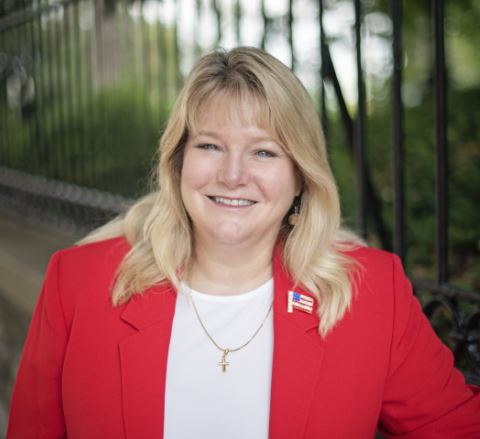Federal Money For Infrastructure Upgrades Coming To Hickory/Benton Counties
More federal money is on its way to the Lake Area to help boost Rural Infrastructure and create new jobs.
According to the USDA, more than $70 million is being allocated to the state, with $13.6 million of that being set aside for lead pipe remediation.
Additionally, some $19.3 million dollars, from the Electric Infrastructure Loan Program, is on its way to Sac-Osage Electric Cooperative to help connect over 1,000 users and build some 76 miles of new line.
That service will go to residents in Hickory and Benton counties.
USDA officials say that also includes a $451,600 investment for smart grid technologies.
Read more:
U.S. Department of Agriculture (USDA) Rural Development State Director in Missouri Kyle Wilkens today announced that USDA is investing $70.3 million to help rural cooperatives and utilities build and improve electric infrastructure and increase electric grid reliability and security, connecting hundreds of thousands of people in rural areas. This funding will also help provide clean drinking water and sanitary wastewater systems in rural areas for years to come.
“Modern infrastructure, whether it’s for safer water and wastewater treatment or improved energy connectivity, is essential to helping create good-paying jobs and support opportunities for rural Missourians to build brighter futures,” Wilkens said. “Today’s investments are great examples of USDA’s dedication to ensuring that people who live and work in rural areas have every opportunity to succeed right at home.”
Today’s announcement highlights six new investments across three key programs. For example:
- USDA is providing a $10.1 million loan and grant combination to the city of Bernie through the Water and Waste Disposal Loan and Grant Program to complete improvements to the water distribution system, water treatment plant, and water storage tanks for the city of Bernie, Missouri. The project will help correct excessive water loss; replace lead-joint cast iron and galvanized steel prone to leakage and breaks; and address inadequate valves, hydrants, and line sizes.
- Sac-Osage Electric Cooperative will use a $19.3 million loan through the Electric Infrastructure Loan and Loan Guarantee Program to connect 1,006 consumers and build 76 miles of line. This investment includes $451,600 for smart grid technologies. Sac-Osage Electric Cooperative serves an average of 11,466 members over 2,432 miles of line in all or portions of nine counties: Barton, Benton, Cedar, Dade, Henry, Hickory, Polk, St. Clair and Vernon counties.
USDA is making the investments through the Electric Loan Program, Water and Waste Disposal Direct Loan and Grant Program, and Business and Industry Loan Guarantee Program.
Rural Development provides loans and grants to help expand economic opportunities, create jobs and improve the quality of life for millions of Americans in rural areas. This assistance supports infrastructure improvements; business development; housing; community facilities such as schools, public safety and health care; and high-speed internet access in rural, tribal and high-poverty areas. For more information, visit www.rd.usda.gov.
Contact USDA Rural Development
Information on programs available through USDA Rural Development is available by visiting www.rd.usda.gov/mo, by calling (573) 876-0976, or by emailing RDMissouri@usda.gov. Stay current by following @RD_Missouri on Twitter.
USDA Rural Development has 25 offices across the state to serve the 2.2 million residents living in rural Missouri. Office locations include a state office in Columbia, along with local offices in Butler, Charleston, Chillicothe, Clinton, Dexter, Eldon, Farmington, Higginsville, Houston, Kennett, Kirksville, Maryville, Mexico, Moberly, Neosho, New London, Poplar Bluff, Richmond, Rolla, Sedalia, Springfield, St. Joseph, Troy, and West Plains.
If you’d like to subscribe to Missouri USDA Rural Development updates, visit our GovDelivery subscriber page.



